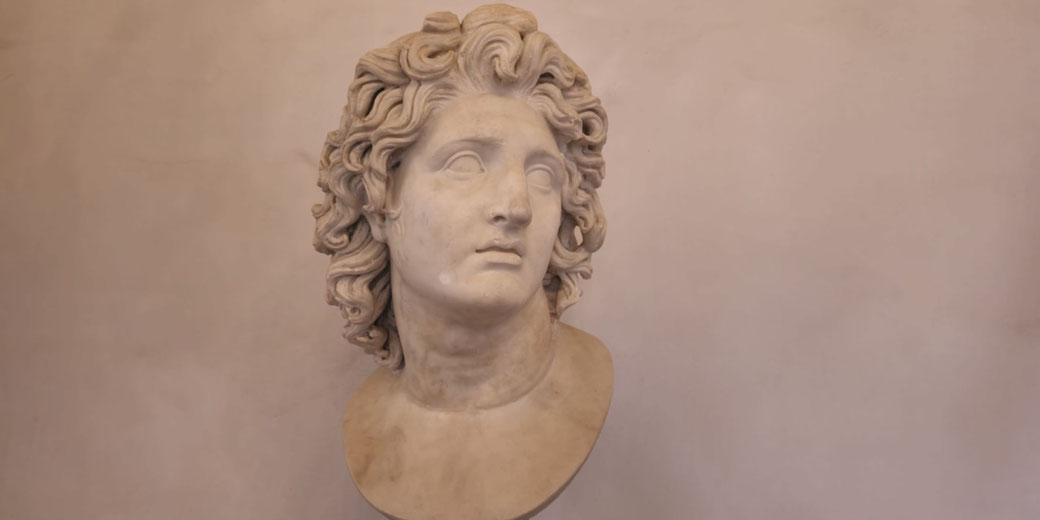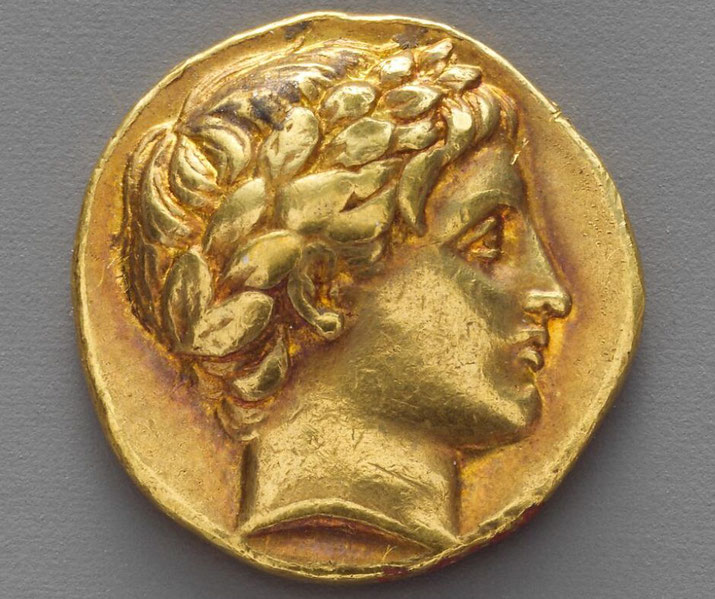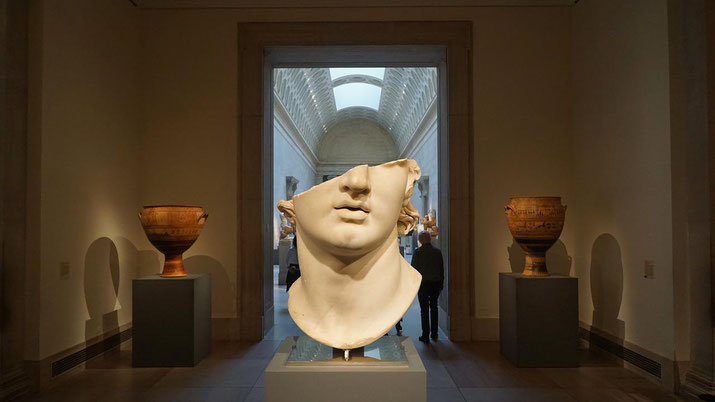The early life and career of Alexander the Great

Alexander the Great is one of the most famous historical figures in the world. He was a great military leader and conquered many lands during his reign.
But what is less well known is his early life – how he became such a powerful and successful ruler.
What happened during Alexander's childhood?
Alexander the Great was born on July 20 or 21, 356 BC, in Pella, the ancient capital of Macedonia, a kingdom in northern Greece.
His father was King Philip II of Macedon, who had unified all the Macedonian tribes into one powerful kingdom.
His mother was Queen Olympias, a princess from Epirus, a region to the west of Macedonia.
In particular, Olympias was a member of the Molossian royal house and claimed descent from Achilles, which may have justified Alexander’s later belief in his divine heritage.
Philip wanted to ensure that his son received the best training and culture. So, it was decided to hire Lysimachus of Acarnania, a teacher in Philip's court, to instruct Alexander in reading, writing, and musical skills.
Alexander was also tutored by Aristotle, one of the most famous philosophers of his time.
He taught Alexander philosophy, science, medicine, literature, and ethics.
Under Aristotle's guidance, Alexander developed a love of learning and became an excellent student.

The taming of Bucephalus
One of the most famous stories from Alexander's early life is how he tamed his horse, Bucephalus.
When Alexander was around 13 years old, Philip considered buying a particularly expensive black stallion from a horse trader.
But no one could ride the horse – he would rear up and throw anyone who tried to mount him.
Philip was about to send the horse away when Alexander noticed that the horse was scared of its own shadow.
Alexander took it upon himself to try and tame the horse. He approached Bucephalus slowly and calmly, speaking to him in a soft voice.
He managed to stroke the horse's head and eventually climb onto his back.
Once he was up, he faced the horse towards the sun, so that the shadow was behind Bucephalus, and rode Bucephalus around the paddock.
After that day, Alexander and Bucephalus were inseparable – the horse would only allow Alexander to ride him.
What did Alexander do at the Battle of Chaeronea?
As the young Alexander became a teenager, it is said that he became envious of the constant military glory that his father was gaining.
Some ancient sources claim that Alexander was anxious that Philip would leave nothing left of greatness for him to do when he became an adult.
However, at the age of 16, Philip had appointed him as the regent of Macedonia while he went on campaign against Thrace.
This showed that Philip II trusted Alexander's abilities. When the Maedi tribe on Macedon's north-east borders rebelled, Alexander seized the opportunity and defeated the rebels, capturing their main settlement.
When Alexander was 18 years old, he took part in one of the most important battles of his father's reign: the Battle of Chaeronea.
It took place on August 2, 338 BC. Macedon and its allies were up against the combined forces of Athens and Thebes, two of the most powerful city-states in Greece.
Philip placed Alexander on the left wing of his army, to lead the cavalry. He was positioned directly across from the famous and undefeated Theban force called the 'Sacred Band'.
Alexander played a key role in the victory, leading a charge against the enemy lines and helping to break through them.
It was a decisive victory for Philip II and Alexander and effectively ended the independence of the Greek city-states.
After the battle, Philip declared that his son was now a man and gave him the rank of general.
Alexander's heated conflict with Philip
Alexander did not always get on with his father. Philip II had many wives and children, and Alexander was not his firstborn son.
This meant that he was not guaranteed to become king after his father's death.
This caused tension between the two of them, as Alexander felt that he deserved to be the heir apparent.
The relationship between father and son came to a head when Philip married a seventh wife, Cleopatra Eurydice, the young niece of Attalus, one of Philip’s leading generals.
She was the king’s one true Macedonian wife, which meant that any child they had would out-rank Alexander as heir to the throne.
At the wedding celebrations, the father and son got into a heated argument. Philip drew a sword on his son but was too drunk to stand up.
Alexander then taunted his father in front of all the important people in the kingdom. Both men ended the night furious and humiliated.
After this incident, their relationship was never the same again. Philip sent Alexander away from Macedonia for a temporary exile. So, he left Macedon briefly with his mother, Olympias, to stay in Epirus and later in Illyria.
However, this only made things worse – Alexander became even more determined to take what he felt was rightfully his.
It is around this time that a rumour developed that Alexander did not believe that Philip was his real father.
Instead, it is claimed, that the god Zeus had impregnated Olympias and Alexander was the child from the union.
What was Alexander's relationship with Hephaestion?
One of the most important people in Alexander's life was his friend Hephaestion. The two met when they were children and quickly became inseparable.
It is claimed that Hephaestion was always by Alexander's side, whether he was leading his troops into battle or simply taking a walk.
Hephaestion was not just a friend to Alexander – he was also like a brother. This is evident from the fact that during Alexander's time as king of Macedonia, Hephaestion received continued promotions in the military, and became an important commander in many of his battles.
In particular, he was appointed as a chiliarch, making him second-in-command of Alexander’s army.
The assassination of Philip II
In 336 BC, Philip II was assassinated by one of his bodyguards, Pausanias. It occurred on October 336 BC during the wedding celebrations of his daughter, Cleopatra, to Alexander I of Epirus.
It is not known for sure why Pausanias killed Philip – some say it was because of a personal insult he felt he had received from Philip, while others believe that he was acting on behalf of the Persians, who were enemies of Macedonia.
After the death his father, Alexander took control of Macedonia. However, Alexander was paranoid about other challengers to the throne, so he moved quickly to remove those threats.
Alexander ordered his supporters to kill his cousin, Amyntas, a potential rival. While his mother, Olympias, murdered Philip's seventh wife, Cleopatra Eurydice and her infant daughter.
Alexander then ordered the deaths of all of Cleopatra’s male relatives. Alexander was now the sole ruler of Macedonia. He was just 20 years old.
Alexander quickly consolidated his power. He crushed a rebellion in Thebes in 335 BC, destroying the city, selling many into slavery, but sparing the temples and the house of the poet Pindar.
These actions showed that he was a ruthless leader who would stop at nothing to keep hold of his kingdom.
Alexander's invasion preparations
At the time of his death, Philip was preparing to invade Persia. After Philip's death, Alexander was determined to fulfil his father's dream and conquer Persia himself.
In the spring of 334 BC, Alexander began his campaign against the Persian Empire, which would ultimately make him one of the most famous people in human history.

What do you need help with?
Download ready-to-use digital learning resources
Copyright © History Skills 2014-2025.
Contact via email
With the exception of links to external sites, some historical sources and extracts from specific publications, all content on this website is copyrighted by History Skills. This content may not be copied, republished or redistributed without written permission from the website creator. Please use the Contact page to obtain relevant permission.





